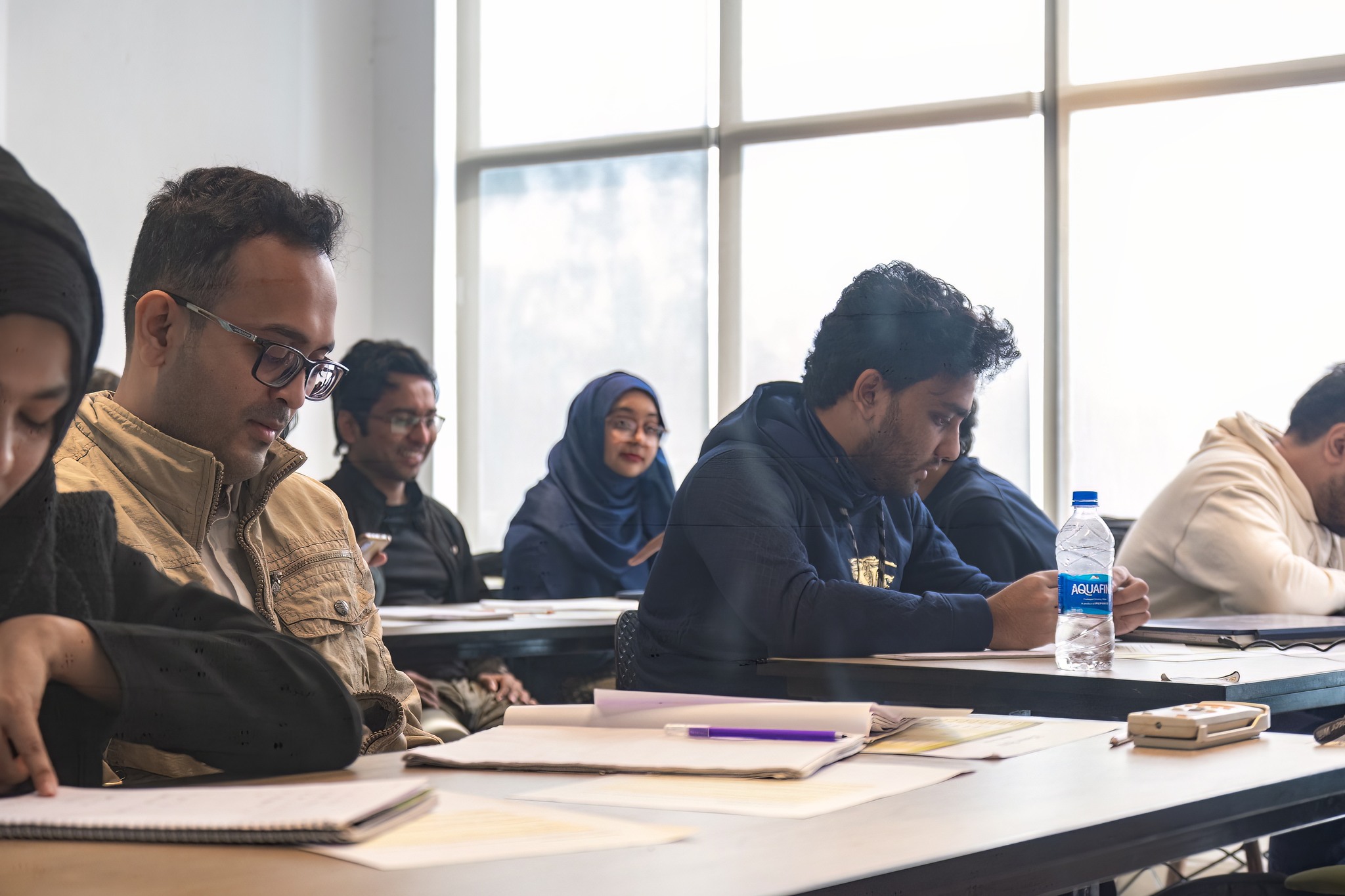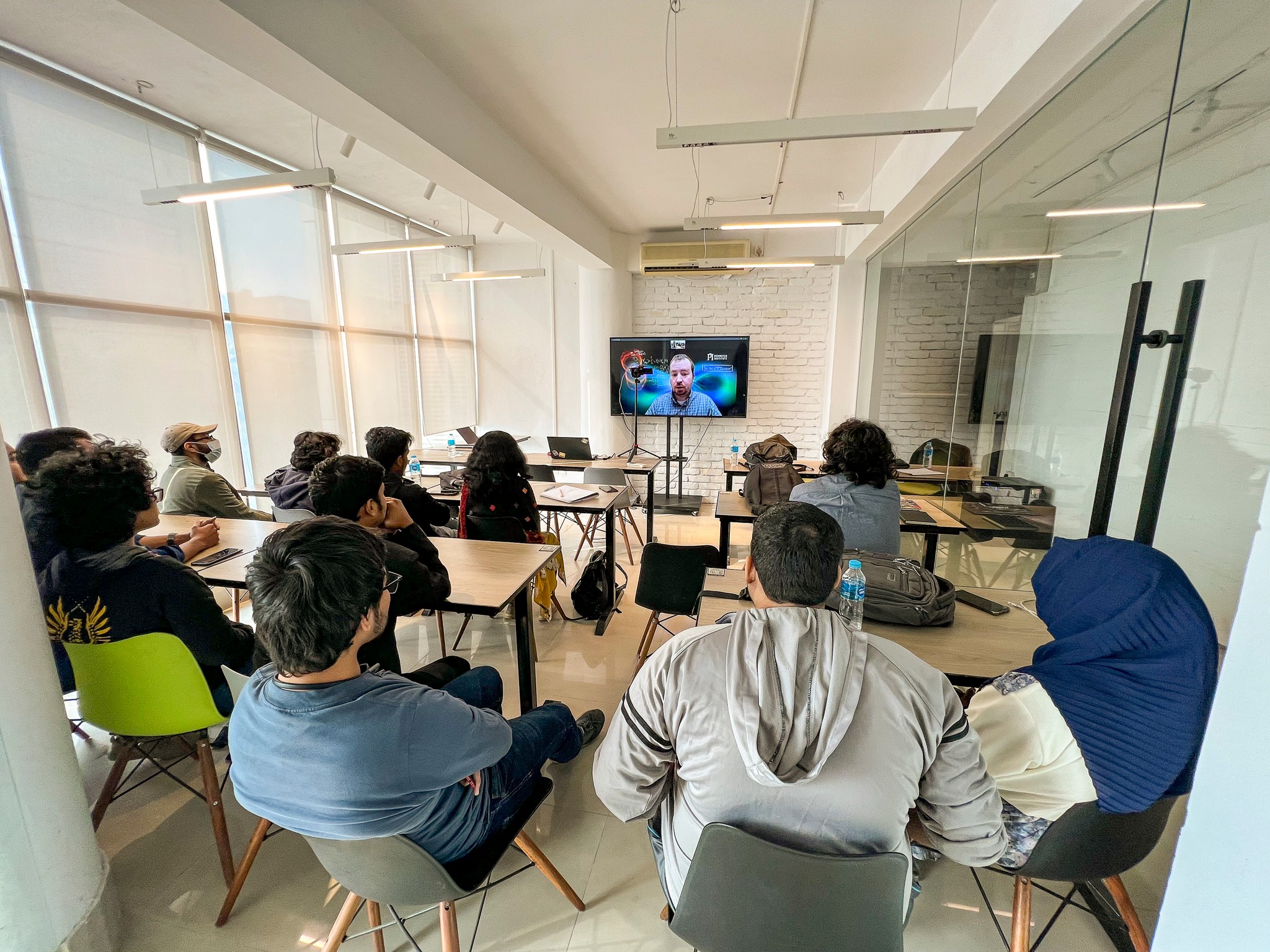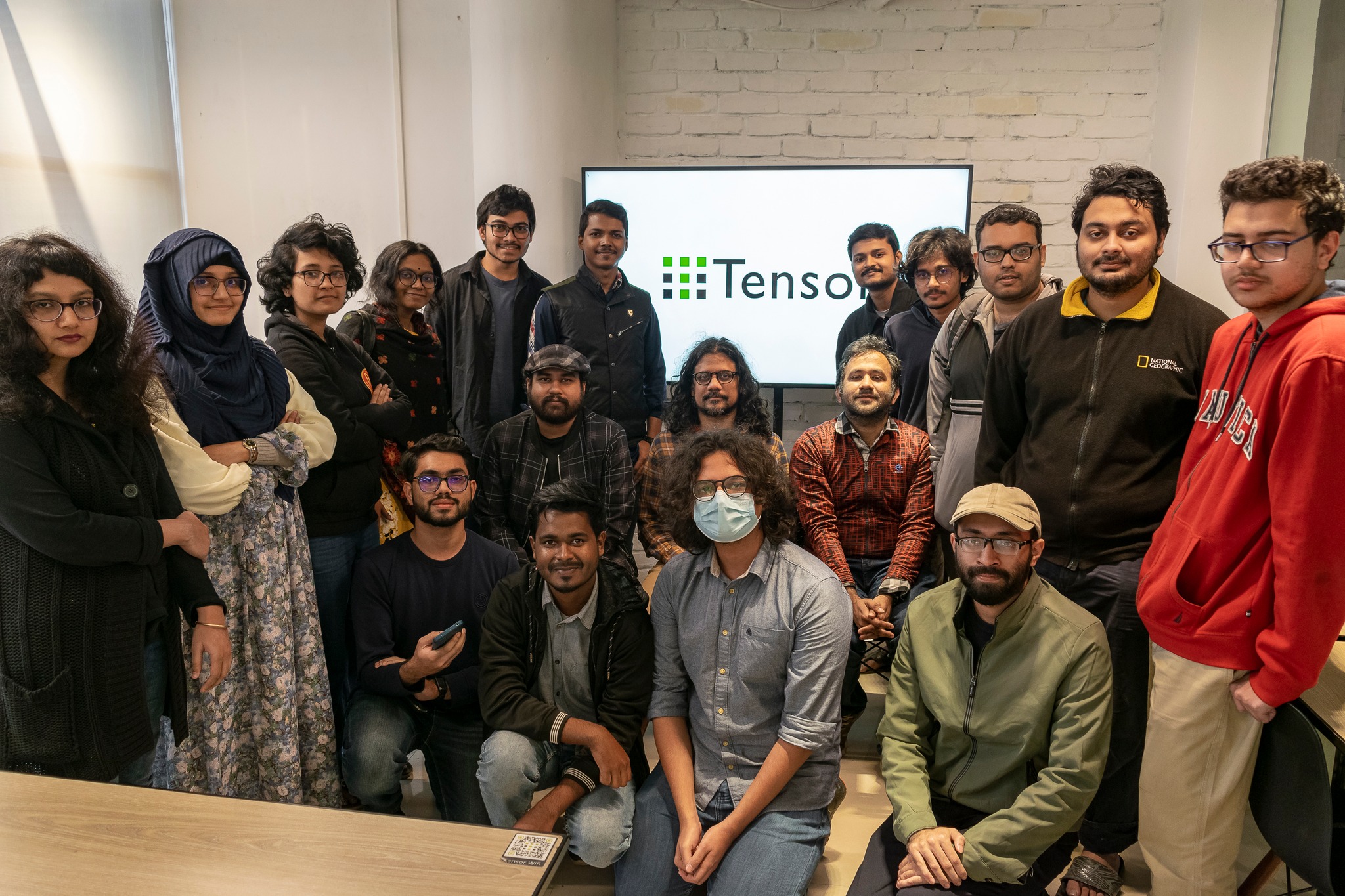This summer, Perimeter Institute formalized its PSI Start Satellite program, which will multiply the reach of Perimeter’s commitment to education and help foster a new generation of theoretical physicists around the world.
For the last three years, the satellite program has run as a pilot at Tensor College in Dhaka, Bangladesh, and for one year at the Kwame Nkrumah University of Science and Technology in Kumasi, Ghana. The transition from trial phase to a formal program won’t change the nature of the satellite program, which has been honed during the last years, but marks a new stage that will allow Perimeter to create new partnerships and expand the program to more communities.
This satellite program is an extension of the PSI Start Program, which was started in 2019 to give undergraduates considering a career in theoretical physics an opportunity to deepen their training in the field and explore topics they might not have covered in college. Currently, the PSI Start Program has two parts: a 10-week online school covering modern topics in theoretical physics, which enrolls around 40 students every summer, and a 15-week research internship at Perimeter Institute for 11 interns.
The small size of the PSI Start Program is intentional. “We’ve experimented with different formats, trying to figure out what is the most effective way to deliver our material, engage our students and provide quality training,” explains Dan Wohns, the Associate Director of Training Programs at Perimeter. This testing has led to the realization that interactive learning, where an instructor provides guidance as students engage and learn from each other, works best with smaller class sizes.
“But at the same time we want to have as big an impact as we can across the world,” says Wohns. The satellite programs are one of the ways Perimeter has found to expand its reach, with Perimeter providing materials and teaching methods that have been developed in-house to other institutions across the globe and, more importantly, to additional students.
Theoretical physics is a field that lends itself well to international dissemination. Unlike other areas of science that require specialized equipment and space, Wohns explains that one of the best ways to learn theoretical physics is through collaboration and peer instruction. “That’s part of the motivation for why we decided on this model,” Wohns says. “The financial costs for the partner institutions is extremely low, which lends itself to scaling.”
In order to host a satellite program, partner institutions only need space, some computers to access the material provided by Perimeter, instructors and, of course, students hungry to delve deeper into theoretical physics.
The satellite program at Tensor College is going into its fourth year and is directed by Tibra Ali, a professor at BRAC University in Bangladesh and a former PSI Fellow. “I wanted to replicate as much of the intense and immersive atmosphere at Perimeter as possible,” explains Ali. For two weeks every January, 15 students from Bangladesh come together, share meals, work through tutorials and learn about topics in theoretical physics, such as path integrals in quantum mechanics and group theory, from the courses provided by Perimeter.
The Tensor PSI Winter School is one of the ways Ali has found to provide STEM students in Bangladesh with more training opportunities. “There is a thirst for knowledge and a dearth of resources and mentorship,” he explains. Much like the PSI Start Program at Perimeter, the Winter School is completely free, and one-third of the participants are women.
A number of participants at the Tensor PSI Winter School have gone on to graduate studies, including Nian Ibne Nazrul, who participated in the very first iteration in 2022 and is now a graduate student at Perimeter and the University of Waterloo.
The satellite program in Dhaka has not just inspired its students to seek graduate studies, it has also pointed them toward the fields they want to explore more deeply. According to Ali, quite a few of his students told him that they want to work on quantum informational aspects of statistical mechanics after taking the quantum information course taught by Alioscia Hamma, a former Perimeter Research Fellow who is now a professor at the University of Naples Federico II in Italy. “Alioscia might not know it, but he has a big fan club at Tensor.”
As Perimeter seeks to continue expanding the satellite program, the institute is looking for partners across the globe, but also here in Canada. “We’re very aware of the talent that exists in Canada, and we’d like to do as much as we can to develop that talent,” Wohns says. Perimeter has had preliminary discussions with potential partners in Canada, and though no concrete plans are in place, Perimeter is actively exploring these opportunities.
“Opportunities for learning about theoretical physics vary widely around the world,” Wohns explains. “We want to get students excited about theoretical physics and expose the most promising students around the world to Perimeter, with the hopes that they will come and study with us.”
About PI
Perimeter Institute is the world’s largest research hub devoted to theoretical physics. The independent Institute was founded in 1999 to foster breakthroughs in the fundamental understanding of our universe, from the smallest particles to the entire cosmos. Research at Perimeter is motivated by the understanding that fundamental science advances human knowledge and catalyzes innovation, and that today’s theoretical physics is tomorrow’s technology. Located in the Region of Waterloo, the not-for-profit Institute is a unique public-private endeavour, including the Governments of Ontario and Canada, that enables cutting-edge research, trains the next generation of scientific pioneers, and shares the power of physics through award-winning educational outreach and public engagement.



